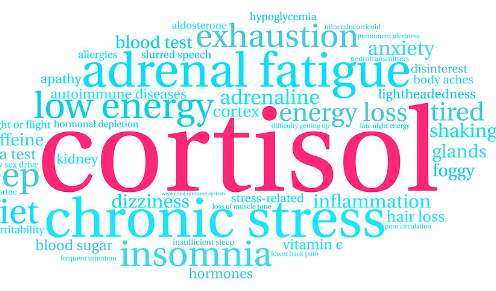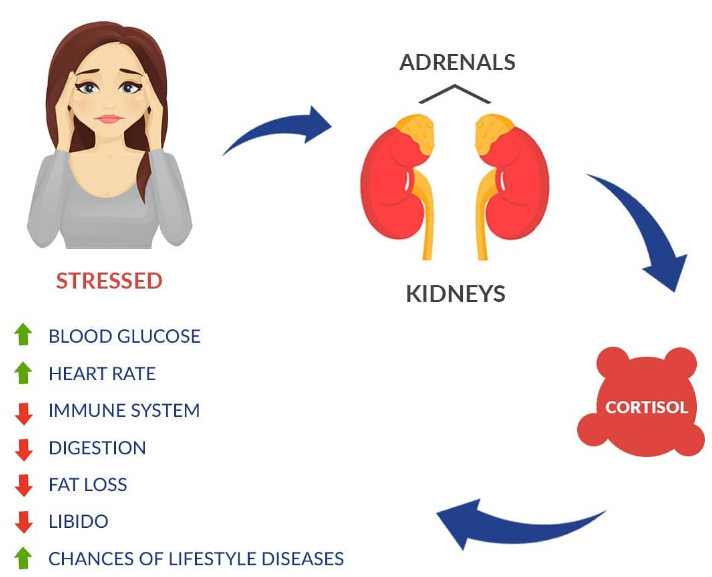
Stress Hormones: The Alarming Red Flags, Powerfully Negative Signs You’re Overwhelmed by Stress
Stress Hormones: Powerfully Negative Signs Indicating an Excess of Stress
In the fast-paced and demanding world we live in, stress has become an omnipresent force affecting individuals from all walks of life. As our bodies react to stress, a cascade of hormones is unleashed, including the infamous cortisol – often referred to as the stress hormone. While cortisol serves essential functions in the body’s response to acute stress, prolonged exposure to stressors can lead to chronic elevation of cortisol levels, resulting in a range of physical and mental health issues. In this comprehensive exploration, we delve into the subtle and not-so-subtle signs that may indicate you are running on stress hormone overload.

-
Sleep Disturbances:
One of the earliest indicators of chronic stress hormone activation is disrupted sleep patterns. Cortisol plays a crucial role in regulating the sleep-wake cycle, and heightened levels can lead to difficulty falling asleep, staying asleep, or experiencing restorative sleep. If you find yourself tossing and turning at night or waking up feeling unrested, it could be a signal that your stress hormones are in overdrive.
-
Persistent Fatigue:
While cortisol is designed to provide a burst of energy during acute stress, prolonged elevation can lead to persistent fatigue. If you find yourself feeling exhausted despite adequate rest, it may be an indication that your stress hormones are disrupting the body’s natural energy balance. This fatigue can manifest as physical lethargy, mental fog, and an overall lack of motivation.
-
Weight Fluctuations:
Cortisol influences metabolism and appetite regulation. Chronic stress often leads to imbalances in these systems, contributing to weight fluctuations. Some individuals may experience stress-induced weight gain, particularly around the abdominal area, while others may notice unexplained weight loss due to altered metabolic processes.
-
Mood Swings and Anxiety:
The impact of stress hormones extends beyond the physical realm into the emotional domain. Elevated cortisol levels can contribute to mood swings, irritability, and heightened anxiety. If you find yourself feeling more on edge than usual or experiencing sudden shifts in mood without apparent cause, it may be linked to chronic stress hormone activation.
-
Digestive Issues:
The gut-brain connection is well-established, and stress hormones play a significant role in gastrointestinal function. Chronic stress can lead to digestive issues such as indigestion, bloating, abdominal discomfort, and even more severe conditions like irritable bowel syndrome (IBS). Recognizing these digestive disturbances can be crucial in identifying and addressing stress-related health concerns.
-
Impaired Cognitive Function:
Cortisol influences various cognitive functions, including memory and concentration. Prolonged exposure to elevated stress hormones may result in impaired cognitive function, manifested as forgetfulness, difficulty concentrating, and a diminished ability to make decisions. If you find your mental clarity compromised, stress hormones may be a contributing factor.
-
Increased Heart Rate and Blood Pressure:
The body’s “fight or flight” response, driven by stress hormones, includes physiological changes like an increased heart rate and elevated blood pressure. While these changes are adaptive in acute stress situations, persistent elevation can contribute to long-term cardiovascular issues. Regular monitoring of heart rate and blood pressure can provide insights into the impact of stress on cardiovascular health.
-
Weakened Immune System:
Cortisol’s role in immune system modulation is dual-sided. While it helps regulate inflammation, chronic elevation can suppress immune function. If you find yourself falling ill frequently or struggling to recover from illnesses, it may be a sign that your immune system is compromised due to prolonged exposure to stress hormones.
Recognizing the signs of chronic stress hormone overdrive is crucial for prioritizing self-care and mitigating the long-term consequences on physical and mental well-being. If you identify with several of these signs, it may be beneficial to seek professional guidance to develop strategies for stress management. Remember, acknowledging and addressing stress is a proactive step toward cultivating a healthier, more balanced life.


